Retail Reinvented: Why the Future is Full of Surprises
RETAIL
In a world dominated by curated feeds and hyper-personalized shopping, consumers are craving the unexpected. Retailers need to flip the script, inviting serendipity into physical spaces and their sales strategies. Mystery boxes, embracing the "Labubu economy", and building deeper emotional connections with their customers are key in the new randomness era of retail.

In an era dominated by algorithmic precision, predictive analytics, and infinite scroll, amid the calm, controlled tide of digital retail optimization, shoppers are beginning to crave something entirely different: chaos. Or, more specifically, the curated kind—surprise, serendipity, and emotional spontaneity. Welcome to the new frontier of retail: unpredictability as strategy.
From Transactional to Experiential
As online commerce grows ever more efficient, the physical store is evolving. It's no longer about shelves stocked for convenience—it's about environments designed for emotional resonance. The modern store isn't just a destination; it's an experience. Retailers are responding by transforming their spaces into playgrounds of unpredictability: rotating assortments, playful layouts, and interactive elements that encourage exploration and emotional engagement.
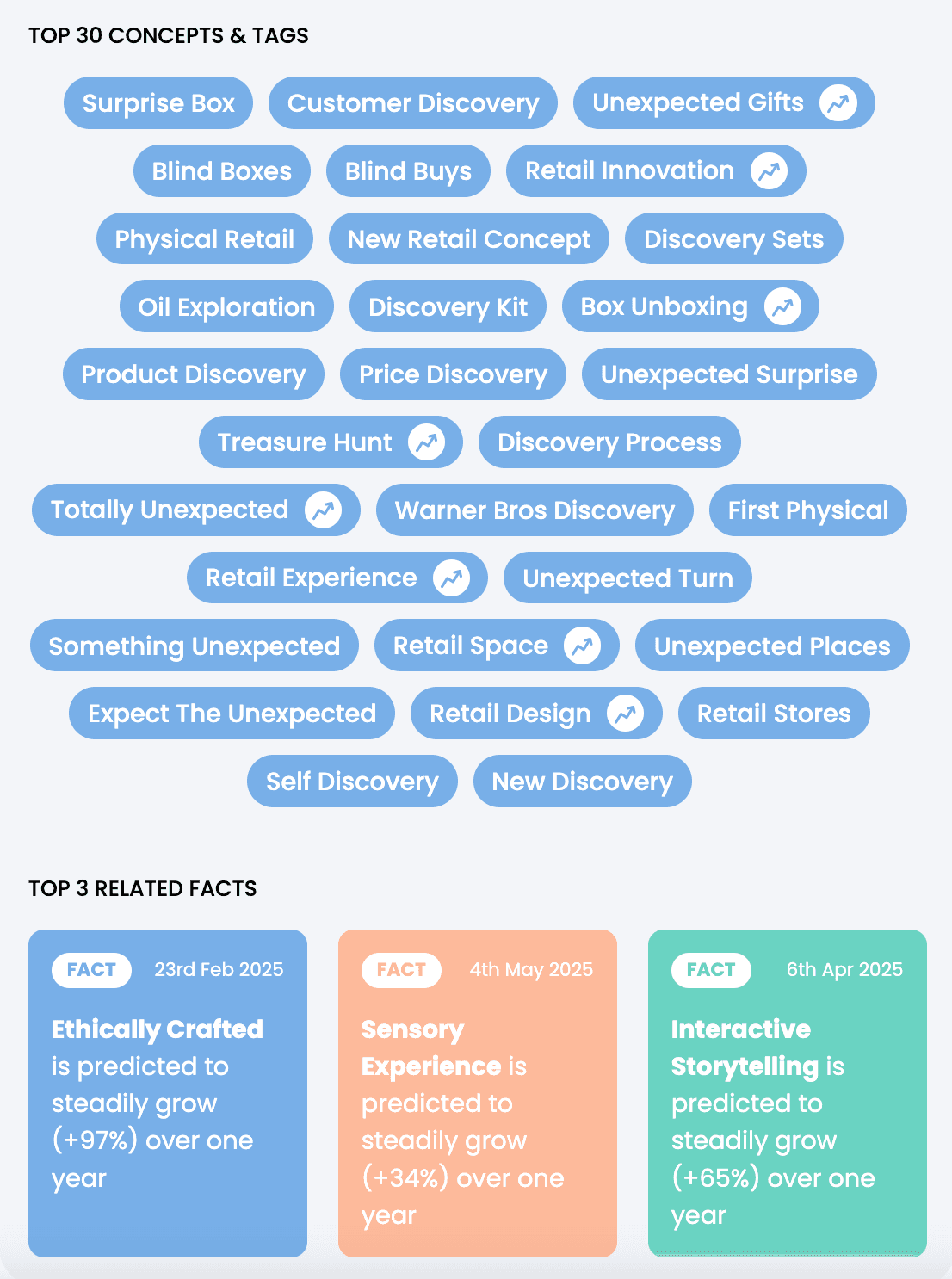
Top concepts and tags from the "Shopping Serendipity" trend on the Nextatlas platform (screenshot taken in May 2025)
By weaving in unpredictability, like mystery products or gamified features, retailers create joyful, memorable experiences that reduce fatigue and build stronger emotional ties with shoppers. Today’s most forward-thinking brands will master “structured surprise”: calculated randomness designed to awaken the shopper's sense of wonder.
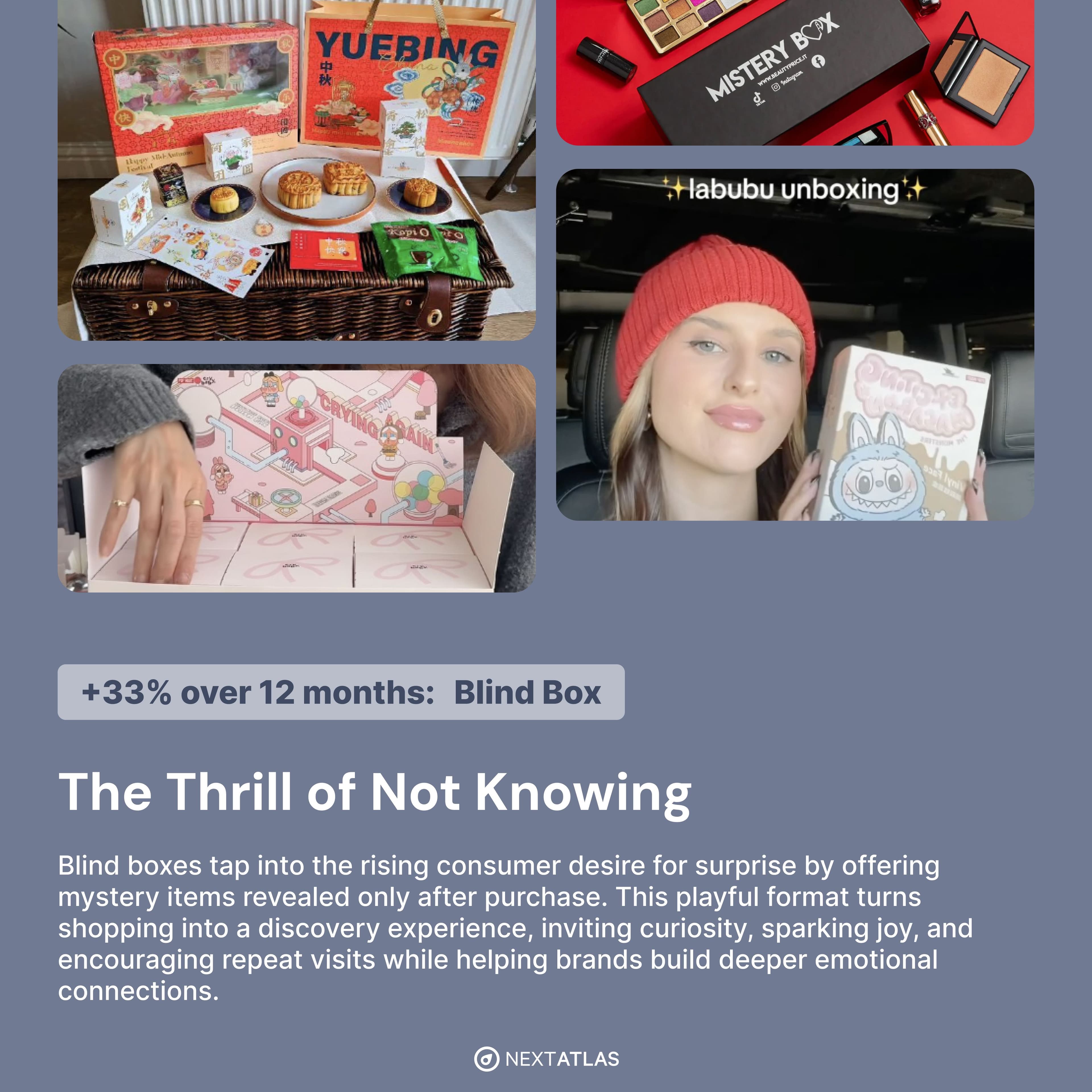
Data on the term "blind box" among our early adopter conversations from our LinkedIn post on the 'Shopping Serendipity' trend
The Labubu Effect: Cuteness Meets Chaos
Need proof? Look no further than Labubu, the snaggle-toothed plush phenomenon that’s taken over TikTok feeds, handbags, and resale platforms. Born from a Hong Kong artist's imagination and distributed by China’s Pop Mart, Labubus are now cultural icons, not despite their weirdness, but because of it.
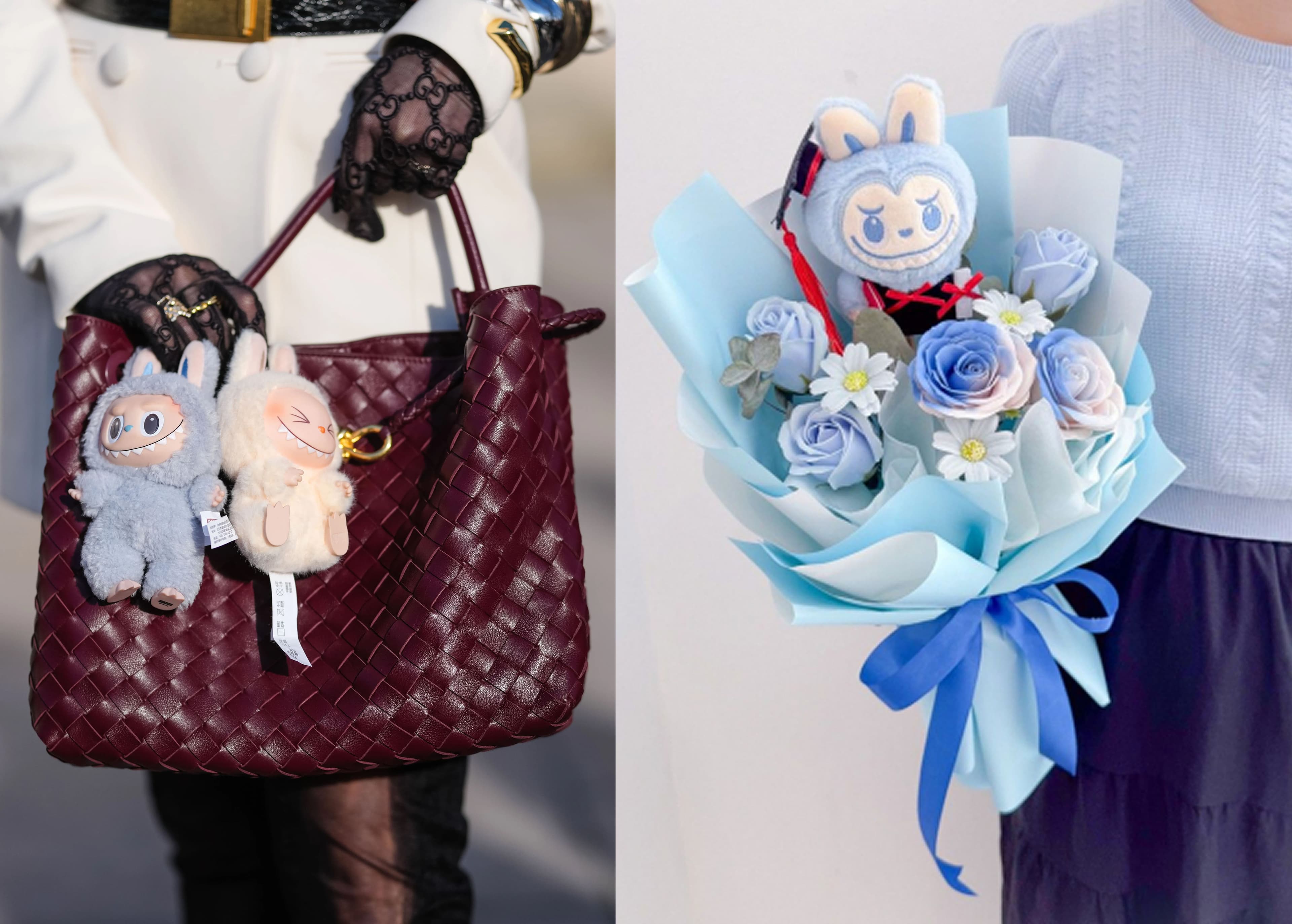
Credits: vogue.com
Sold in blind boxes, Labubus flip the script on rational consumer behavior. Shoppers aren’t driven by utility; they’re chasing the thrill of chance. It’s a plush lottery where the odds don’t matter, because the experience itself becomes the value. It’s scarcity, storytelling, and serendipity that create a status symbol. The chaotic cuteness of Labubu isn’t just childhood nostalgia, it’s a commentary on how value is now co-created by community, attention, and serendipity.
Pop Mart is now valued at USD 34 billion — more than the makers of Barbie, Hello Kitty and Transformers combined. That’s a global takeover fueled by blind boxes, toothy fluffy dolls, and a fiercely loyal fan base.
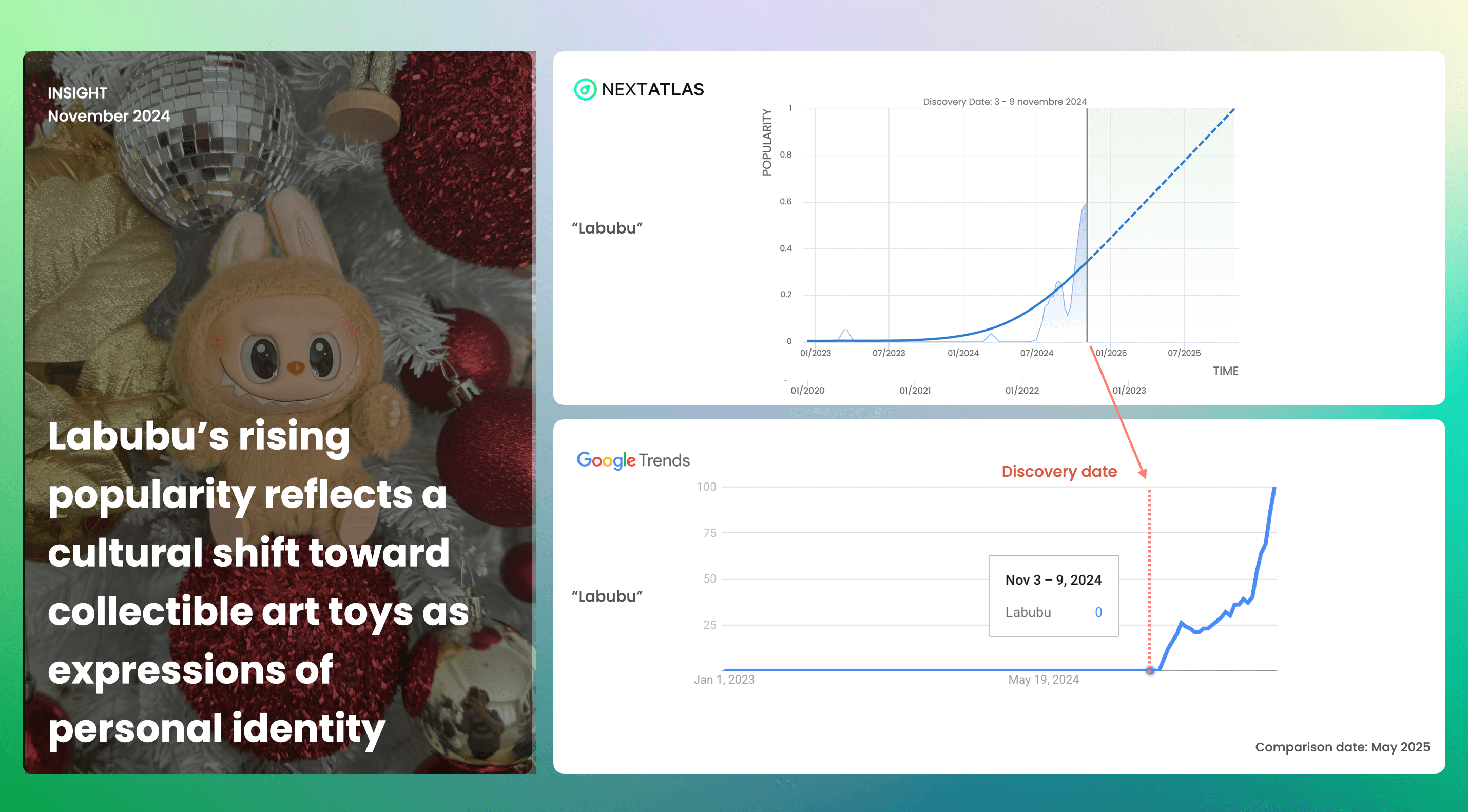
We detected rising interest in ‘Labubu’ in 2024, shortly before the term took off in search trends, confirming its growing cultural traction (Nextatlas platform timeline and Google Trends comparison)
Mystery as the New Luxury
This logic can be applied beyond plush dolls. Le Creuset’s held a mystery box promotion at its 2025 Factory to Table sale. For $50, customers received a mystery box containing premium cookware worth up to $350—an offer that created buzz, long lines, and social media engagement.
At first glance, it looks like an inventory-clearing tactic, but it’s actually a clever cultural strategy. For consumers, these surprise bags turn the purchase into a performance, a ritual, a rush. This approach taps into the thrill of unboxing and the emotional appeal of chance, turning a simple sales event into a playful, discovery-driven experience. By blending value with surprise, Le Creuset effectively reinvigorated interest in legacy products.
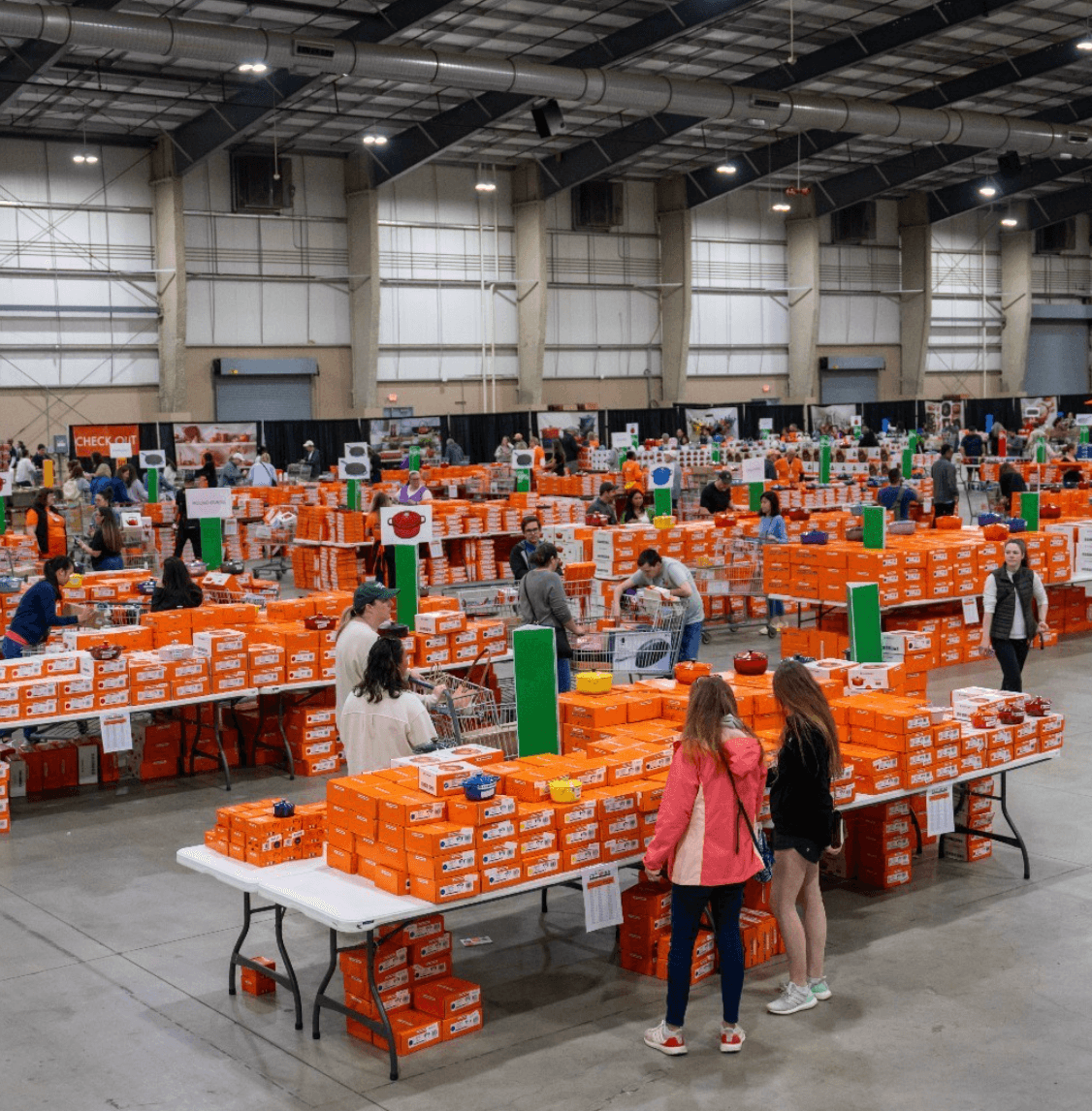
Credits: instagram/@lecreuset
The New Emotional Currency
Why is this happening now? Because even the most personalized algorithm can’t replicate the human thrill of discovery. Hyper-curation has become so precise as to be predictable, and that predictability is flattening consumer excitement.
What we're seeing is a revolt against retail rationality. The rise of so-called “mildly cursed” plushies, gamified store layouts, and mystery product drops all signal a hunger for spontaneity in a system that’s otherwise too perfect. From vending machines dispensing surprise merch to concept stores changing themes monthly, the new rules of retail are strategically unwritten.
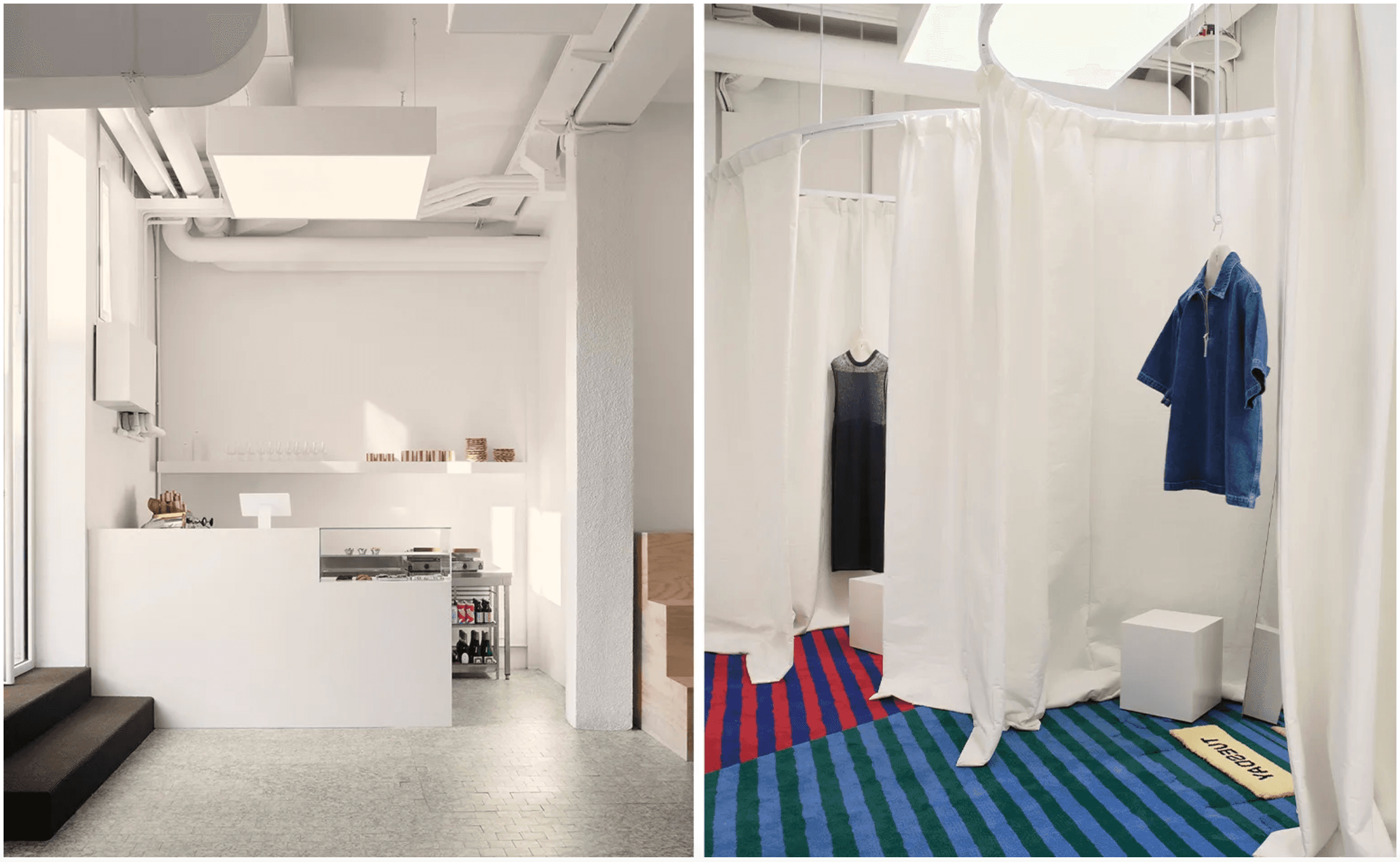
Milan-based brand Sunnei has launched a hybrid concept store and café with modular pegboard walls and flexible layouts, transforming from daytime café/retail space to evening performance space (credits: Courtesy of Sunnei)
Welcome to the Labubu Economy
This isn't a passing phase. It's a broader cultural pivot: from optimization to emotion, from curation to chaos, from conversion to connection. Retail in 2025 isn't about predicting what the consumer wants. It's about letting them discover what they didn’t know they needed. And in that moment of surprise, whether it’s pulling a neon tracksuit from a mystery bag or scoring a rare Labubu, they’re not just making a purchase. They’re making a dopamine-infused memory.
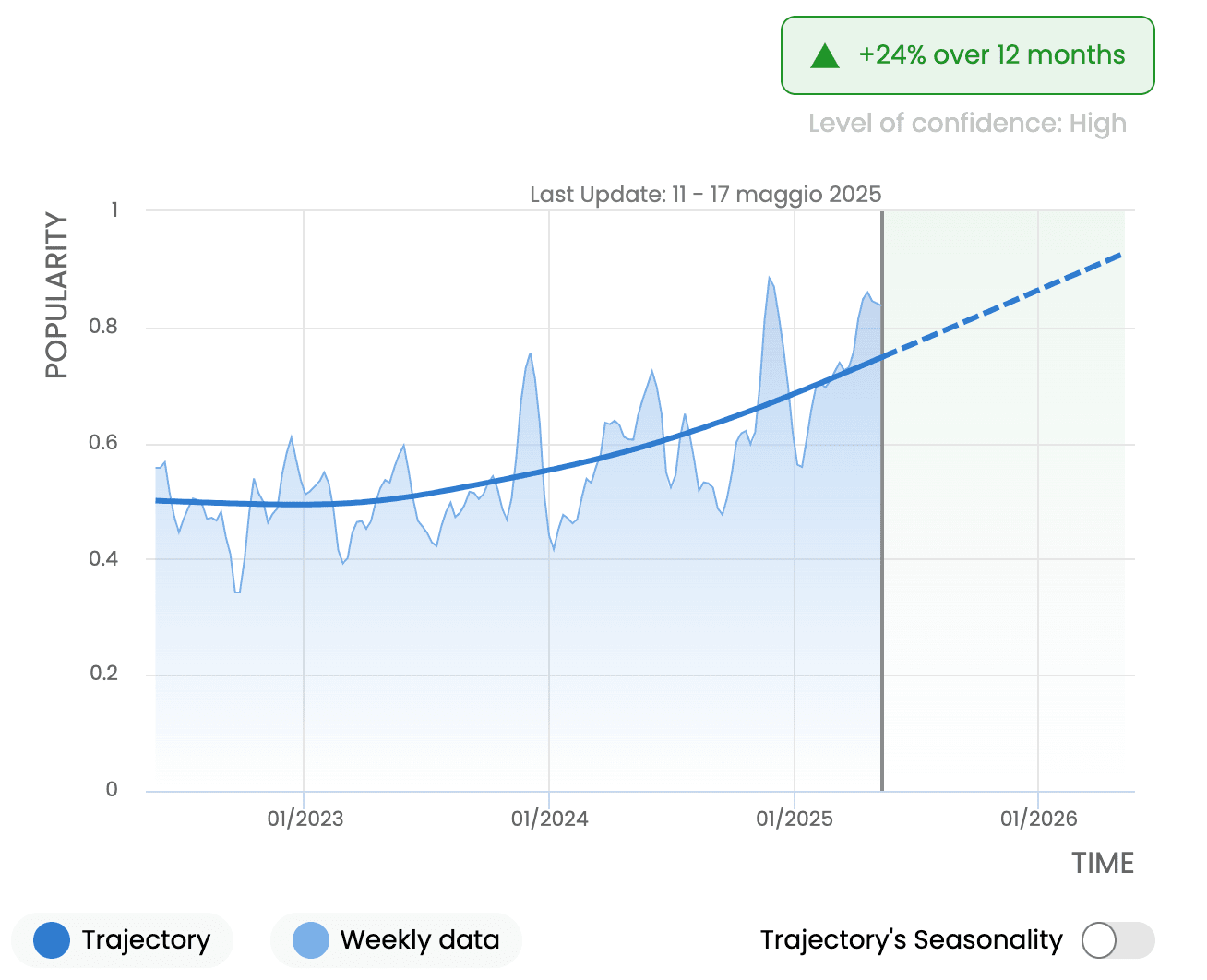
Timeline of the "Shopping Serendipity" trend from the Nextatlas platform, showing an expected growth of 24% over one year of the popularity of this trend (screenshot taken in May 2025)
Retail is in its Randomness Era
The retail of tomorrow doesn’t just deliver products. It delivers surprise. And for today’s consumer, that might just be the ultimate premium.
Spontaneity Sells: In a world where everything is expected, the unexpected becomes a luxury.
Serendipity is Strategy: Brands are designing environments that invite play, curiosity, and emotional resonance.
The Labubu Economy: Scarcity, storytelling, and community hype are shaping how cultural value is made and shared.
Presence Over Perfection: Shoppers are embracing slower, less linear journeys—where meaning trumps metrics.
Trend lines, data, and information described in this article emerge from the ongoing analysis performed by Nextatlas on its global observation pool made of innovators, early adopters, industry insiders expressing their views on Twitter, Instagram, and Reddit.
To learn more about our AI, discover Nextatlas Methodology here
Related articles:
Italy
Torino - Via Stampatori 4, 10122(Operational headquarter)+39 011/0864065VAT number and registration number at the Registro delle Imprese di Cagliari: 03428550929 paid share capital € 167.740,00 — © 2024 iCoolhunt SpA.



